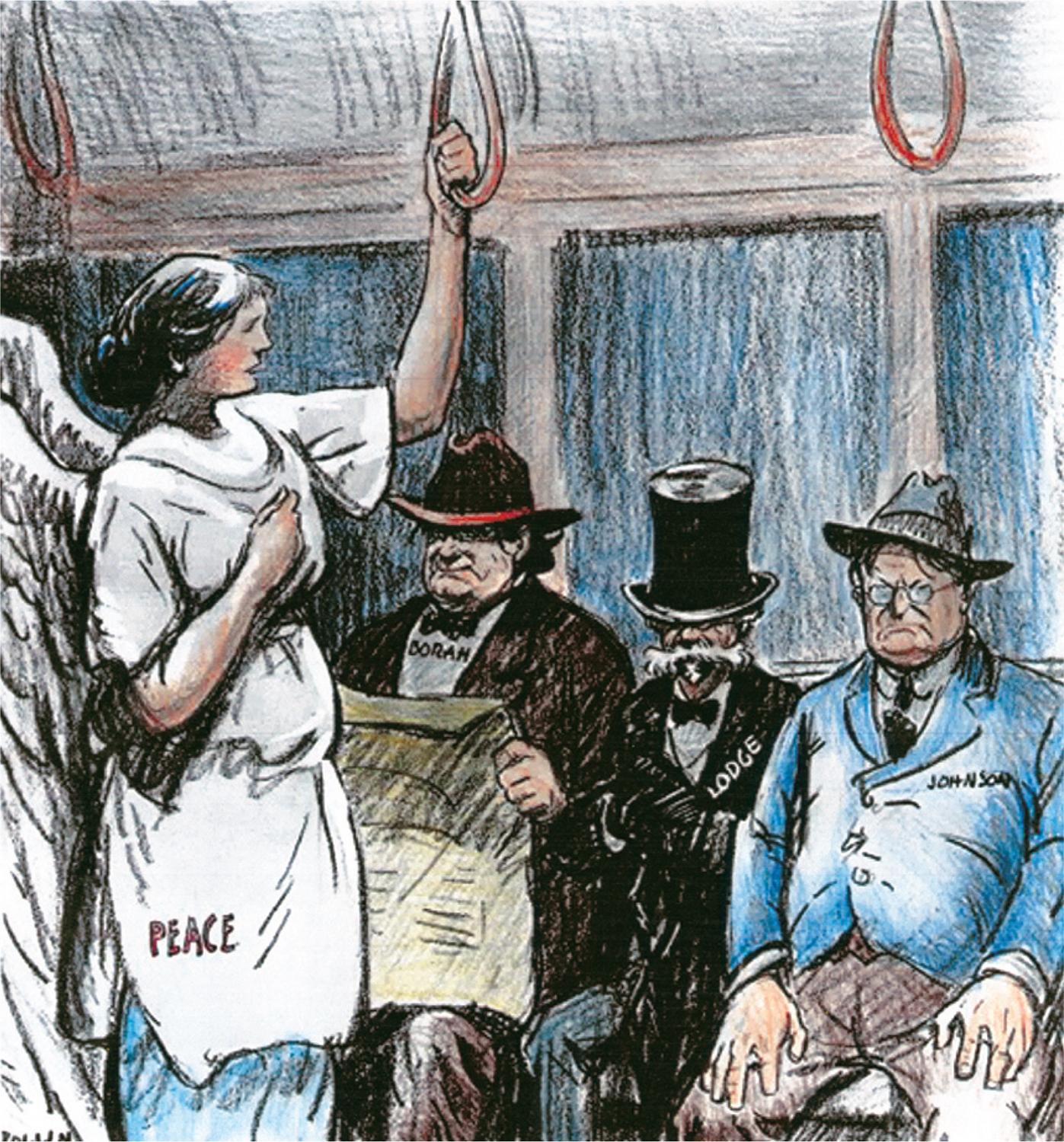The Fight for the Treaty
The tumultuous reception Wilson received when he arrived home persuaded him, probably correctly, that the American people supported the treaty. When the president submitted the treaty to the Senate in July 1919, he warned that failure to ratify it would “break the heart of the world.” By then, however, criticism of the treaty was mounting, especially from Americans convinced that their countries of ethnic origin—
In the Senate, Republican “irreconcilables” condemned the treaty for entangling the United States in world affairs. A larger group of Republicans did not object to American participation in world politics but feared that membership in the League of Nations would jeopardize the nation’s ability to act independently. No Republican, in any case, was eager to hand Wilson and the Democrats a foreign policy victory with the 1920 presidential election little more than a year away.
At the center of Republican opposition was Wilson’s archenemy, Senator Henry Cabot Lodge of Massachusetts. Lodge was no isolationist, but he thought that much of the Fourteen Points was a “general bleat about virtue being better than vice.” Lodge expected the United States’ economic and military power to propel the nation into a major role in world affairs. But he insisted that membership in the League of Nations, which would require collective action to maintain peace, threatened the nation’s independence in foreign relations.
With Lodge as its chairman, the Senate Foreign Relations Committee produced several amendments, or “reservations,” that sought to limit the consequences of American membership in the league. For example, several reservations required approval of both the House and the Senate before the United States could participate in league-

It gradually became clear that ratification of the treaty depended on acceptance of the Lodge reservations. Democratic senators, who overwhelmingly supported the treaty, urged Wilson to accept Lodge’s terms, arguing that they left the essentials of the treaty intact. Wilson, however, insisted that the reservations cut “the very heart out of the treaty.”
Wilson decided to take his case directly to the people. On September 3, 1919, still exhausted from the peace conference, he set out by train on the most ambitious speaking tour ever undertaken by a president. On September 25 in Pueblo, Colorado, Wilson collapsed and had to return to Washington. There, he suffered a massive stroke that partially paralyzed him. From his bedroom, Wilson sent messages instructing Democrats in the Senate to hold firm against any and all reservations. Wilson commanded enough loyalty to ensure a vote against the Lodge reservations. But when the treaty without reservations came before the Senate in March 1920, the combined opposition of the Republican irreconcilables and reservationists left Wilson six votes short of the two-
The nations of Europe organized the League of Nations at Geneva, Switzerland. Although Woodrow Wilson received the Nobel Peace Prize in 1920 for his central role in creating the league, the United States never became a member. Whether American membership could have prevented the world war that would begin in Europe in 1939 is highly unlikely, but the United States’ failure to join certainly weakened the league from the start. In refusing to accept relatively minor compromises with Senate moderates, Wilson lost his treaty and American membership in the league.
REVIEW Why did the Senate fail to ratify the Versailles treaty?